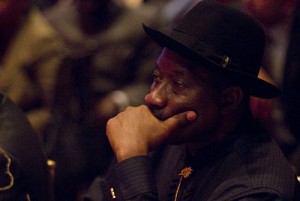Featured
Court Orders EFCC To Release Jonathan’s ex-ADC, Ojogbane Adegbe

Yusuf Halilu, justice of the federal capital territory (FCT), Abuja, has ordered the Economic and Financial Commission Crimes Commission (EFCC) to release Ojogbane Adegbe, ex-ADC of former President Goodluck Jonathan on bail immediately.
Halilu asked the EFCC to release Adegbe on bail on liberal terms pending his arraignment in court for any offence. He held that the law should be even-handed between the government and an individual, and wondered why the EFCC had reduced itself to a “police station”, saying that the anti-graft agency must act within the limits of the law.
The judge stated that the EFCC had no right to detain an individual at will, adding that it was unconstitutional for the agency to keep Adegbe in detention for more than 24 hours. Before the ruling was delivered, Ogwu Onoja, counsel to Adegbe, informed the court that the EFCC had transferred his client to a military facility after granting him bail on stringent conditions. Musu Denga, counsel to the EFCC, did not object to the submission of the Ogwu.
Thereafter, the judge, stated that his ruling was binding not only on the EFCC, but also on any agency keeping him in detention. Adegbe hauled the Economic and Financial Crimes Commission (EFCC) to court to challenge his arrest and continued detention by the anti-graft agency since February 11. ?
At the resumed hearing of the case in February, Onoja, counsel to the plaintiff, told the court that Adegbe filed the application pursuant to the provisions of the law and the rules of the court. ?
Onoja urged the court to declare his client’s arrest and continued detention by EFCC since as unconstitutional, and a violation his right to personal liberty guaranteed by the 1999 constitution. ?He prayed the court to make an order directing EFCC to immediately release the applicant from unlawful detention. ?Onoja submitted that the arrest and detention of Adegbe by the EFCC violated his right to personal liberty and freedom of movement guaranteed by section 35 and 41 of the 1999 constitution. ?
The applicant’s counsel contended that EFCC’s action violated Articles 5, 6 and 12 of the African Charter on human and peoples’ rights.? He also asked the court to make an order mandating EFCC to release the plaintiff on bail pending hearing of his case at a competent court of jurisdiction. Onoja argued that there was no material evidence placed before the court to show that the plaintiff was detained on the directive of the Nigeria army as claimed by the EFCC. ? Opposing the application, Denga, the EFCC counsel, informed the court that the respondent filed a counter affidavit challenging the plaintiff`s motion.
Benda contended that Adegbe was not detained by the EFCC, adding that the ex-ADC was undergoing questioning and was kept on the directive of the Nigeria army. The EFCC counsel, therefore, urged the court to dismiss the application for lack merit. But the court ruled that the EFCC was “dancing Makossa” in its argument that the army was responsible for the detention of Adegbe. It ordered the release of the applicant.






